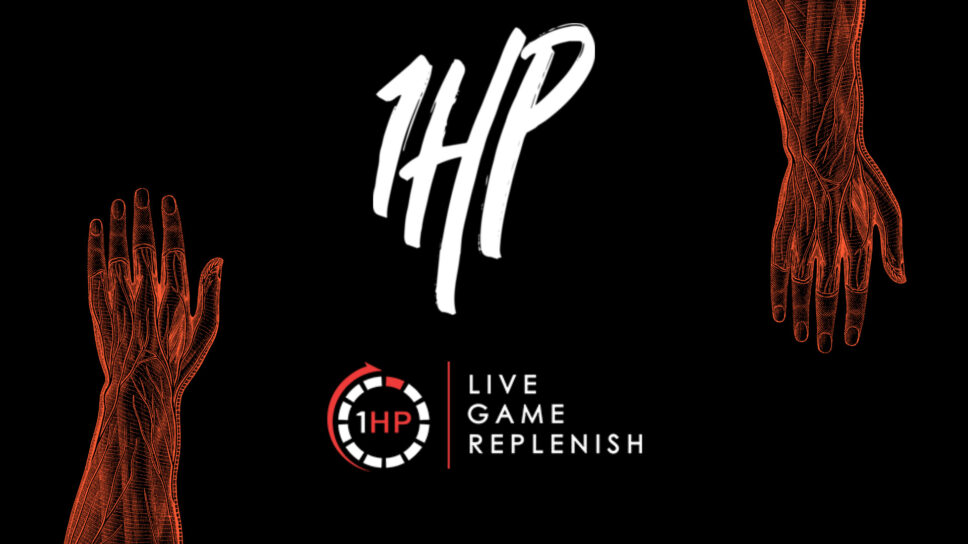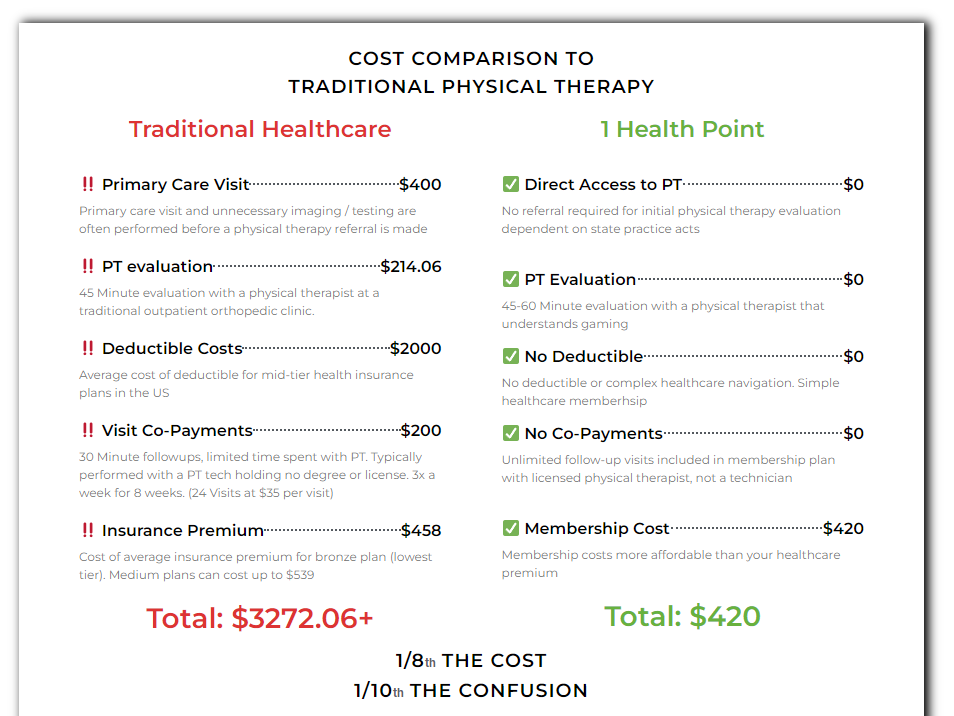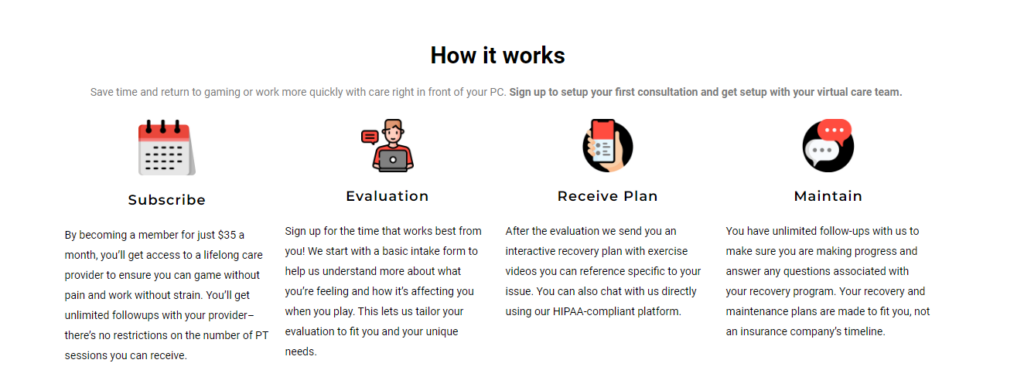Providing comprehensive care to a younger generation of pro gamers, physical therapy group 1HP looks to bring esports healthcare to all.
Dr. Matthew Hwu wants to make one thing clear when it comes to esports healthcare. "It's almost never Carpal Tunnel Syndrome."
A a common neurological disorder that occurs when the median nerve, which runs from your forearm into the palm of the hand, becomes pressed or squeezed at the wrist. It's often that gamers of a certain age hear this as the main, common, and only explanation for performance issues.
And he wants to change that.
If there's one takeaway from talking with the founder of the health and performance services group 1HP, it's that generational misinformation often does more harm than good. "On the medical side they [traditional healthcare providers] only have about five minutes to treat the patient," he said.
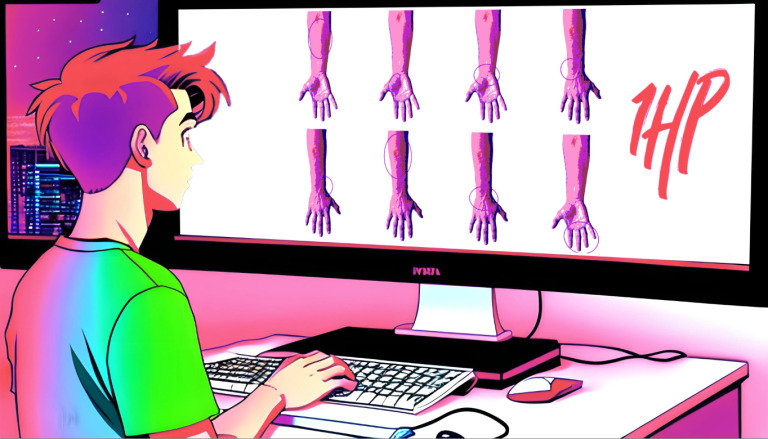
"It's just because in the limited amount of time with a patient they don't have the time to go through your lifestyle, stressors, and ask "How do I actually do a physical and subjective assessment?'" Along with Dr. Caitlin McGee and an entire team of providers from an entire spectrum of healthcare practices, 1HP wants to not only improve gamer's performance, but also their daily lives.
And for 1HP that mission starts with education, no matter if you're a member of Evil Geniuses or a gold rank VALORANT player.
Esports healthcare, 1HP, and myth
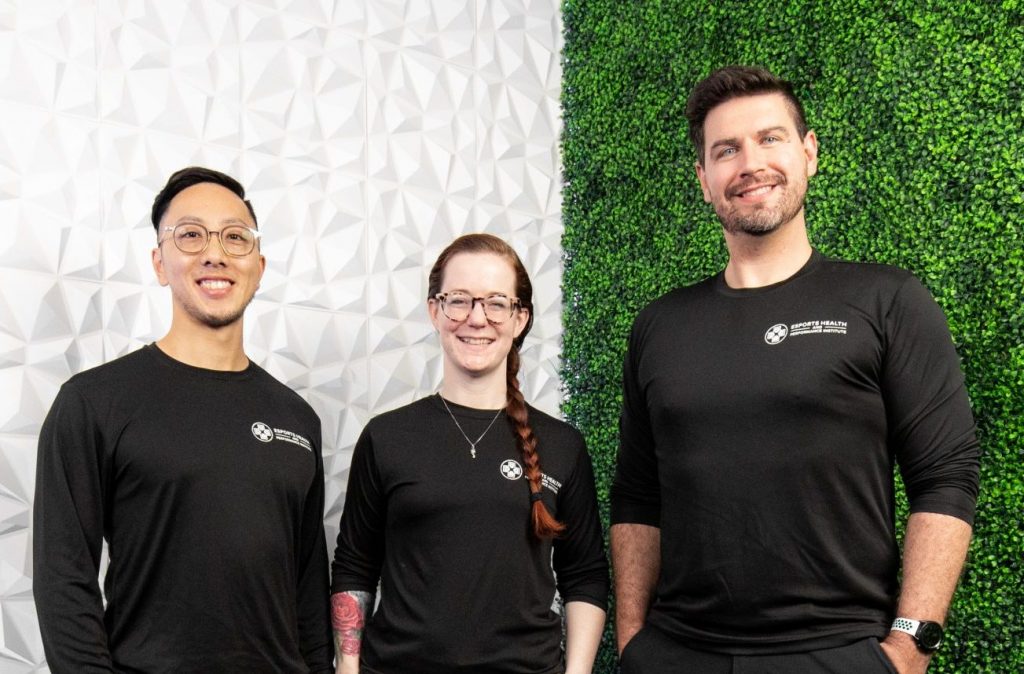
"When something like Carpal Tunnel gets labeled as a general diagnosis, what do we do as gen-z and millennials? We go to Google and search," Dr Hwu and McGee said in a Discord call with esports.gg. Part of the work that 1HP does focuses education about commonly misdiagnosed ailments that become part of a supposed common knowledge.
He says it starts with how the new generation digests data--and how SEO-first medical information passes along bad info that enters the zeitgeist. "What do SEO optimizers do based on keyword research? They create articles based on that, so it perpetuates the myth."
Live, game, replenish
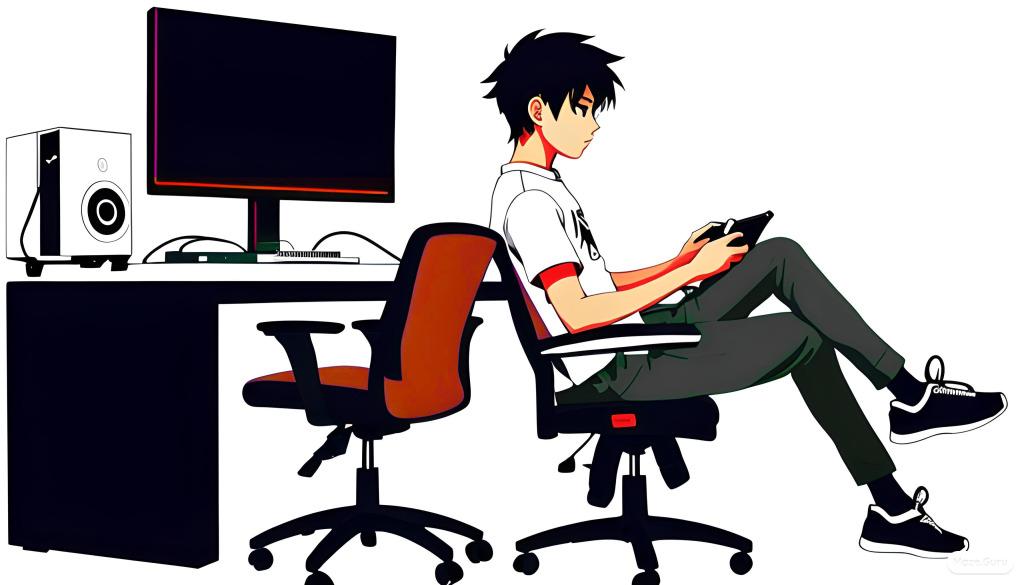
However, part of the 1HP mission is correcting bad form in many ways, which includes the medical information we base our lives on. According to Dr. McGee, their group strives to bring evidence-based health education to not only the top esports orgs, but the masses as well. "When we started 1HP, we really wanted to make sure that health and performance access wasn't just for top-tier teams," she says.
"We work on what we call a top-down and bottom-up approach. Which means we're working with teams to change their perceptions of high-performance, as well as misconceptions around pain and injury." 1HP's work in esports includes the likes of Counter Logic Gaming, the Overwatch League's LA Gladiators, Team Liquid, and more.
This healthcare work involves a core, proactive approach that takes physical health into consideration, along with things such as nutrition, sleep, mental wellness, and more.
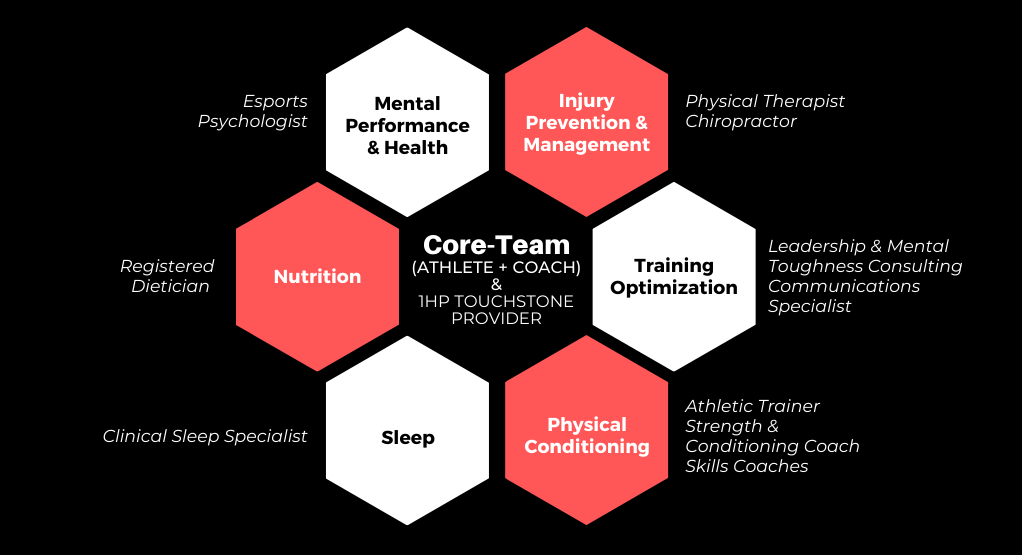
In and young a rapidly growing arena such as competitive gaming, the issue arises of dismissing injury, stress, and even mental health as part of the grind. Especially when it comes to a younger demographic who feel bulletproof, they think success comes by the old measure of "no pain, no gain."
But time comes for all of us eventually.
Working in the world of esports
"We definitely see some folks who are resistant to proper care because "I'm 17 and invincible," Dr. McGee says. "But at the same time and to an extent greater than any other population I've ever worked with, gamers want to know, and figure out, and understand their body." It doesn't hurt that Drs McGee and Hwu are gamers themselves, with backgrounds in DOTA, Smash, League of Legends, and more.
For this new, inquisitive generation of healthcare patients, they want to know the when, why, and what of their body. "That desire to know and to learn and to figure out what's going on? It serves you well to form fantastic skills as a player, but it also helps in learning how your body functions and how to optimize it," Dr. McGee told us.

Part of that learning process, whether you're a pro or a 38 year-old editor for an esports website with poor posture, is an inclusive assessment. While 1HP looks to consult for the top athletes for their esports healthcare needs, they also offer individual health and performance consultations.
Health in the virtual world
A post-pandemic world has made telehealth and virtual consultations a more mainstream option. But as Dr. Hwu and McGee explain, there are limits that keep traditional care providers from providing a comprehensive look into the body that fully supports the realm of esports healthcare. Patients with pain centered around gaming are afforded a more balanced virtual assessment due to it taking place in the location where they do the most work.
As Dr. McGee discusses, it's harder to diagnose motion and physical issues related to gaming when a patient comes into an office, away from their set-up--seen for five minutes by a healthcare provider who may or may not look at things such as range of motion, how you sit, how long you play, and more.
"It's lets you see people in the environment they're experiencing pain in." To compare, an injury to a runner is easier to diagnose for a traditional provider because you can place them on a treadmill, have them run three miles, and then examine. However, 1HP wants to provide the same kind of care and assessment but for someone coming off of a five hour gaming session.
1HP's telehealth is about how esports healthcare can make it more accessible to people, but also because people don't often have the language to describe the pain they're going through. The doctors note that they can have someone play VALORANT for an hour and have a patient pinpoint where they're feeling pain or stressors, which helps to create a more thorough diagnosis.
The esports healthcare stigma
If you're like me--a gamer beginning to feel the rigors and stress of your lifelong hobby, then you know it's hard to talk about. In many ways i've felt stupid wanting to bring up to my general practitioner that my hands hurt and I've started to have numbness in my fingers. After all, I sit in front of a computer all day for work, then do the same in my spare time.
More to the point, traditional healthcare doesn't always attempt to make the time for patients. We've all had the experience of scheduling our doctor's visit months in advance, only to get five minutes of one-on-one time with a healthcare professional we see once, maybe twice a year.
"It's overwhelming," said Dr. Hwu. "They're probably throwing a bunch of things at you, guessing what you're doing, and so they might make a print-out that has one or two generic objectives." He says that 1HP has gone one step further, noticing that when they ask patients about their understanding of their own health that they don't often understand the "why" of it.
Thus enters the 1HP 'healthbar.'
HP, explained
Whether you realize it or not, muscles and tendons take a toll when performing high-end skills in esports. Dr. Hwu and 1HP picture this as a metaphorical healthbar representing deteriorating condition of your joints, limbs, and more. "Every time you press buttons or perform an action like a Wave Dash in Smash, you're gradually losing this HP on the healthbar."
According to 1HP, there's actions and care to take in helping to not only reduce the amount of deterioration in those repetitive actions, through things such as ergonomics, better posture, hydration, and more. The bar itself represents how much physical stress we can handle, providing a shorthand to better explain the stress we place on ourselves.
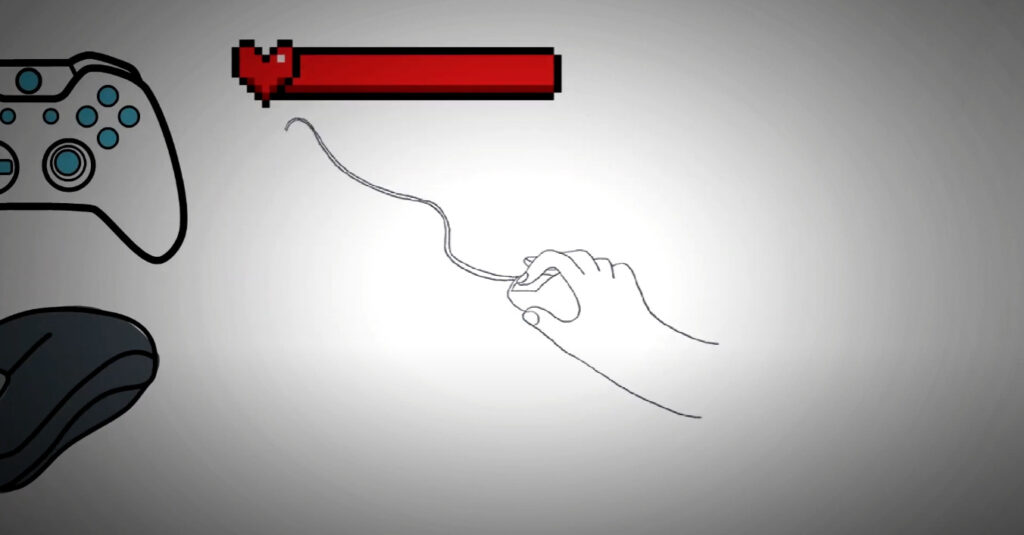
Dr. Hwu says that you can 'increase your healthbar' in the metaphysical sense through conscientious care of your health. This includes better nutrition, sleep, drinking water, and also taking into account the hardware we use. We talked with the doctors extensively about the use of third-party hardware helping to increase the ability of players to perform at a high level.
This includes in the realm of fighting games with devices such as the Hitbox fight stick, which includes better accessibility options. Both Dr. McGee and Hwu commented on the recent decision by Microsoft to ban third-party devices on Xbox hardware, saying that any changes that affect player's and their ability to play is bad for everyone.
Better health for all
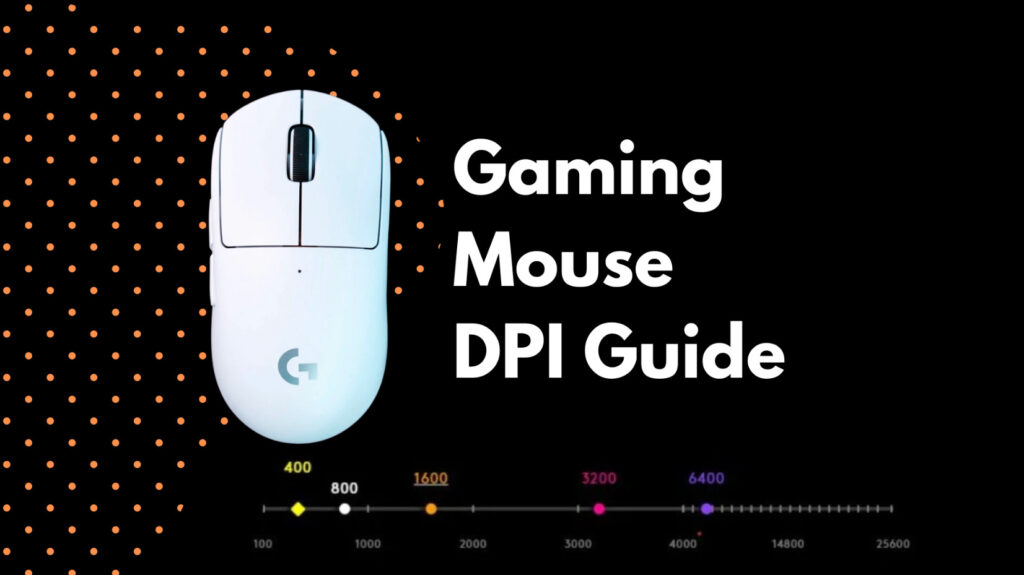
What can gamers do to better improve their overall health? For Dr. Hwu, it's all about good habits and being aware of your own body. Specific exercises can increase endurance, while building up strength and adopting habits that don't place stress on your most-used joints. For those of us obsessed with mouse sensitivity, DPIs, and what mousepad we're using, he says it's more important to take care of your muscles.
"You can use whatever controller, or sensitivity, or DPI you want. That's the biggest obstacle that people don't realize--they focus so much on these things, like sensitivity. But they need to zoom out, look at the bigger picture, and not just one individual part."
Best video game patients
And while humans are malleable creatures, able to sort out their physical issues, I had to ask both doctors about which character in gaming they'd love to tackle as part of an assessment. For this writer, the most terrifying patient seems like it would be Junkrat from Overwatch--a man who tells his own healer in-game that he just rubs radioactive dirt on his wounds.
And let's not get started on Wario from Smash. Just.... Ugh.
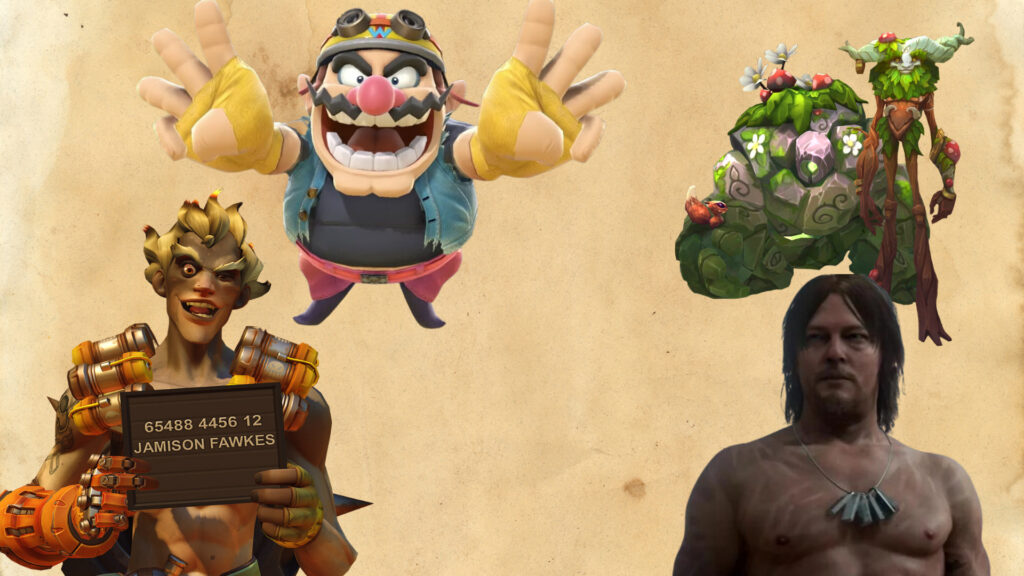
Dr. McGee jokes that there's no fixing Astarion from Baldur's Gate 3, despite all of our wishes to do. However, she went with her heart and said Sam Bridges from Hideo Kojima's Death Stranding. "About 90 percent of what you have to do in that game is figuring out how to balance your load in an ergonomic fashion," she said. "That's the one I would like to treat, because he's making a genuine effort and I want to support him.
For Dr. Hwu, he stuck to what he knows best--League of Legends and the long, long limbs of Ivern, the Green Father. "He has some really unique considerations if I had to assess his posture.
Esports healthcare and self-responsibility
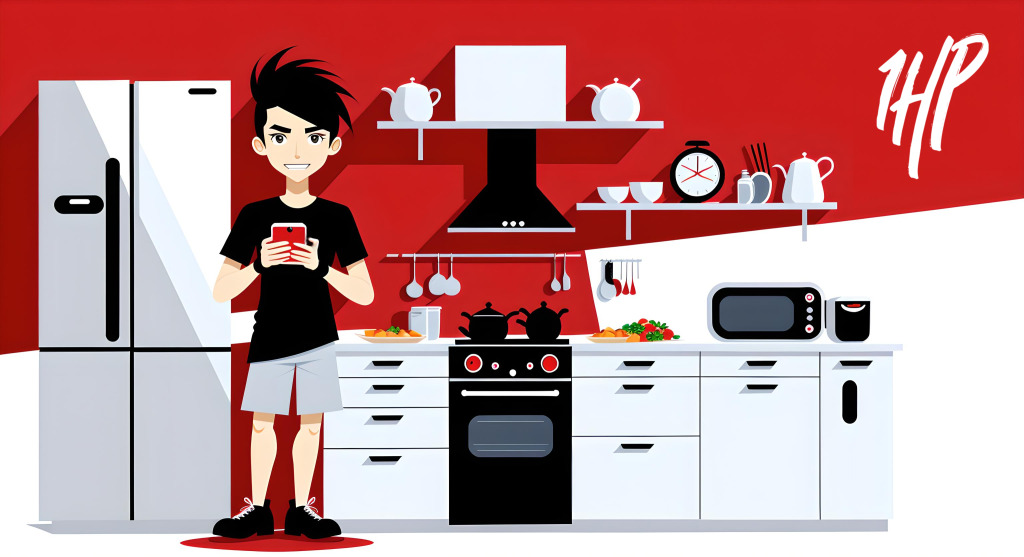
At the end of the day, the mission of 1HP in the realm of esports healthcare is to educate on what the smallest actions do to our body. More to the point, that every little thing matters and that nothing is left up to chance. However, Dr. McGee sees a bright side to this new world of younger athletes, even in a world where traditional healthcare doesn't always meet their needs.
"I think the biggest thing for me is I really want to emphasize that, within the gaming community, there's such a desire to understand and exhibit control over their own health," she said. "Not in a toxic sense, but a belief in their own capability."
"I want to be able to affect things; let me affect things, please."
Stay tuned to esports.gg for esports news and gaming information.

